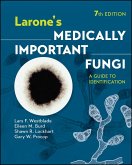Melatonin, originally only perceived as the hormone of the pineal gland, is now known to be a ubiquitous compound present in all eukaryotic clades studied so-far and in bacteria as well. In mammals, it is formed in numerous extrapineal sites, and the quantities of extrapineal melatonin exceed those in the pineal gland and in the circulation by orders of magnitude. New functions have been identified that were never considered before. In plants, morphogenetic modulation, protection of photosystems, changes in gene expression, interactions with phytohormones, protection against abiotic and biotic stress were described. In accordance with the bacterial origin of melatonin, its synthesis was demonstrated in mitochondria and chloroplasts. A newly expanding field concerns the regulation by non-coding RNAs, such as microRNAs, and by other epigenetic modulators, as well as signaling via a mitochondrial melatonin receptor. This volume may help to disseminate the information on various recent developments in melatonin research, which exceed the traditional view of this important, pleiotropic and orchestrating regulator molecule.
Dieser Download kann aus rechtlichen Gründen nur mit Rechnungsadresse in A, B, BG, CY, CZ, D, DK, EW, E, FIN, F, GR, HR, H, IRL, I, LT, L, LR, M, NL, PL, P, R, S, SLO, SK ausgeliefert werden.
Hinweis: Dieser Artikel kann nur an eine deutsche Lieferadresse ausgeliefert werden.









